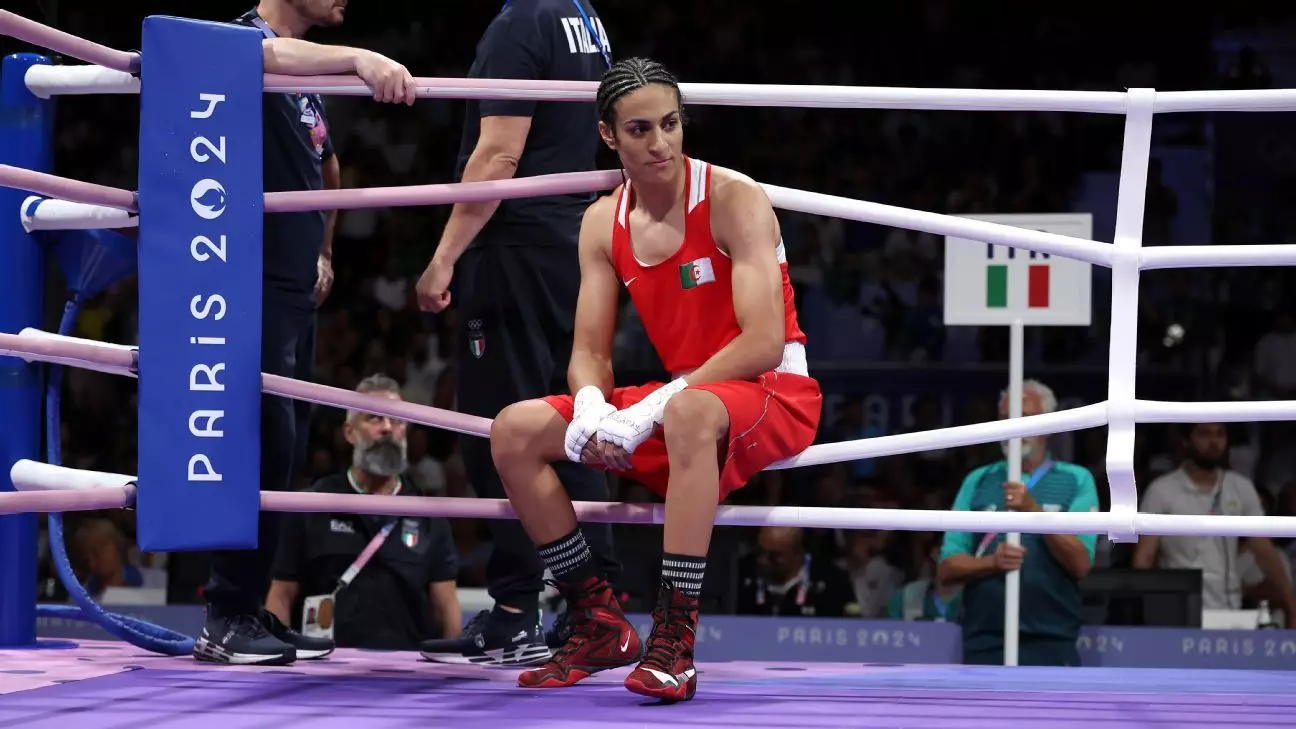The lead-up to the Paris 2024 Olympics has not been without turmoil, particularly surrounding the debatable inclusion of female boxers Imane Khelif from Algeria and Taiwan’s Lin Yu-ting. Their participation is under scrutiny due to past decisions made by the International Boxing Association (IBA), which disqualified them following an abrupt and contentious gender eligibility test. The fallout from this disqualification has sparked widespread outrage and debate about the fairness and clarity of policies governing gender in competitive sports, especially in boxing. Amid a chorus of criticism, the International Olympic Committee (IOC) is standing firm in its decision to permit these athletes to compete, citing the need for athletes to engage in sports free from discrimination.
Khelif’s recent victory in the welterweight category, securing a win within a mere 46 seconds, has only intensified public attention on the ongoing gender controversy. Coupled with Lin’s upcoming match, the IOC is contending with an influx of criticism, including pointed remarks from high-profile figures. The IOC expressed dismay at the “aggression” directed toward Khelif and Lin, asserting that sports should remain a level playing field. Their statement emphasized that both athletes deserved to compete without facing hostility or persecution based on arbitrary decisions that lack transparency.
Important to consider is the backdrop against which the IBA made its disqualifications. Lacking a clear and public framework for the gender eligibility process, the actions taken against Khelif and Lin appear to be not only sudden but also capricious. The IBA has come under fire for its governance, losing its recognition from the IOC for reasons spanning financial mismanagement and lack of proper oversight. In the wake of these issues, the IOC has stepped in to assume control of the boxing competitions for the Paris Olympics, adding another layer of complexity to an already convoluted situation.
Questionable Governance and Ethical Considerations
The disqualification of Khelif and Lin was initially justified on the grounds of safety, as indicated by the IBA’s claims of not fulfilling a testosterone examination, which are part of their eligibility standards. However, skepticism about the integrity of this approach looms large. The IBA’s insistence on the confidentiality of the metrics underpinning its disqualification raises pressing concerns. How can athletes trust an organization that evades transparency in its disciplinary actions? The broader public sentiments reflect a need for accountability and clarity in eligibility standards, especially in a sport where physicality is paramount.
Critics, including renowned public figures such as author J.K. Rowling and entrepreneur Elon Musk, have added to the debate by questioning the fairness of allowing athletes disqualified by the IBA to compete in what many view as an inconsistent framework. The essence of the matter revolves around whether these athletes are genuinely receiving the respect and fairness in competition to which they are entitled. The IOC’s statement serves to highlight that these instances of disqualification symbolize a breakdown in governance rather than failings on the part of the athletes.
In 2021, eligibility standards for the Tokyo Olympics were established, and the IOC insists these should remain unchanged for Paris 2024. While consistency in rules is essential for maintaining a level playing field, the rigidity can also have negative repercussions for athletes facing arbitrary judgments. The emphasis on the importance of fair testing and clear policies must be paramount. As both Khelif and Lin prepare to box on the Olympic stage, the complexities of modern sports’ gender policies force a re-evaluation of what constitutes fairness and equity.
The ongoing controversy surrounding these two female athletes challenges global sports organizations to rethink their policies. With an eye towards a future where all athletes may compete on equal footing, the paradox of gender verification and inclusion remains a critical issue for the IOC to address. As Paris embraces the world once again through the Olympic Games, the stakes feel higher than ever for athletes whose careers and reputations hinge on deeply flawed systems. In the midst of this, the resilience of Khelif and Lin serves as a poignant reminder of the powerful narratives that continue to unfold within the sporting world.


Leave a Reply